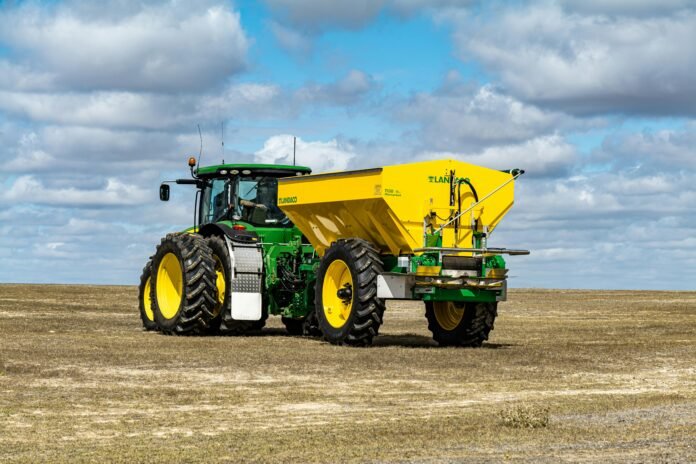In the face of escalating global challenges such as climate change, resource depletion, and a growing population, the agricultural sector stands at a crucial crossroads. The demand for sustainable food production methods has never been more pressing. “Adopting Technology for Sustainable Modern Agriculture” delves into the transformative potential of advanced technologies in revolutionizing agricultural practices. From precision farming and smart irrigation systems to biotechnological advancements and data analytics, this exploration highlights how embracing innovative solutions can lead to more efficient, resilient, and eco-friendly farming methods. By integrating cutting-edge technology, modern agriculture can significantly reduce its environmental footprint while boosting productivity and ensuring food security for future generations. This comprehensive guide underscores the importance of a tech-driven approach to cultivating a sustainable and prosperous agricultural landscape.
Various Approaches to Achieving Sustainable Modern Agriculture
Precision Farming Techniques
Precision farming techniques are an innovative way to reduce environmental impact while boosting productivity. Technology such as Global Positioning System (GPS) and Geographic Information System (GIS) enable farmers to monitor their crops meticulously. This kind of precise management allows for optimum use of resources like water, fertilizer, and pesticides. As a result, these resources are not wasted, reducing the overall negative environmental impact.
Utilization of Drones and Automated Machines
Drones and automated machines are another example of technology transforming traditional farming methods. Drones equipped with multispectral sensors can provide accurate data about crop health, helping farmers make informed decisions about irrigation and pest control. On the other hand, automated machines can perform tasks like seeding, weeding, and harvesting more efficiently and with lesser fuel consumption compared to traditional equipment, thereby reducing greenhouse gas emissions.
Aquaponics and Hydroponics systems
Aquaponics and hydroponics are innovative farming techniques that significantly save water and land resources. These soilless agriculture systems recycle water and nutrients, reducing the need for artificial fertilizers. Aquaponics, which combines aquaculture (raising aquatic animals) with hydroponics (growing plants in water), also allows for the sustainable production of both proteins and vegetables in a closed loop system. These methods offer the potential for high yield production while greatly minimizing environmental impact.
Case Studies: Successful Implementations of Sustainable Farming
The Transformation of Stone Barns Center, New York
Stone Barns Center is a shining example of successful implementation of sustainable farming. Initially struggling with conventional farming practices, the farm decided to switch to regenerative agriculture principles. By employing these methods, they reduced their water usage by 30%, decreased energy consumption, and significantly dwindled pesticide use, all while maintaining agricultural output. Central to this transformation was the use of cover crops, which improved soil health, reduced erosion, and retained moisture. The center also introduced livestock into the system to help with soil fertility and simultaneously produce organic meat for local markets.
Embracing Crop Diversity at Rosedale Farm, Maryland
Rosedale Farm in Maryland has shown that embracing crop diversity can drive both sustainability and productivity. Traditionally a mono-crop farm, Rosedale decided to shift towards polyculture – cultivation of various crops in the same space. This method made Rosedale Farm resistant to pest invasions and diseases. As a result, they could eliminate or significantly reduce the use of harmful pesticides and fertilizers, thus minimizing environmental impact. The diversified portfolio of crops also protected the farm from market volatility and proved to be financially beneficial.
Sustainable Aquaponics at Superior Fresh, Wisconsin
Superior Fresh, located in Wisconsin, is an example of how innovative farming methods can lead to sustainability. The company utilized aquaponics, a system that combines conventional aquaculture (raising aquatic animals) with hydroponics (cultivating plants in water) in a symbiotic environment. The fish waste provides organic food for the plants and the plants naturally filter the water for fish. This closed-loop system drastically reduces water and energy consumption compared to traditional farming methods, while yielding high quantities of both fish and vegetables. Furthermore, Superior Fresh recycles nearly 100% of its water, further lessoning its environmental footprint.

